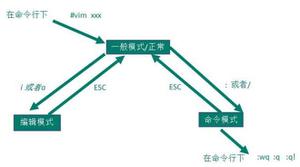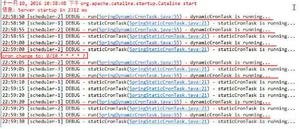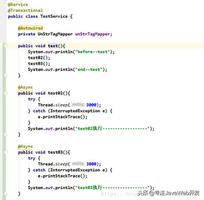python apsheduler cron 参数解析

from:https://apscheduler.readthedocs.io/en/v2.1.2/cronschedule.html
This is the most powerful scheduling method available in APScheduler. You can specify a variety of different expressions on each field, and when determining the next execution time, it finds the earliest possible time that satisfies the conditions in every field. This behavior resembles the “Cron” utility found in most UNIX-like operating systems.
You can also specify the starting date for the cron-style schedule through the start_date parameter, which can be given as a date/datetime object or text. See the Date-based scheduling section for examples on that.
Unlike with crontab expressions, you can omit fields that you don’t need. Fields greater than the least significant explicitly defined field default to * while lesser fields default to their minimum values except for week and day_of_week which default to *. For example, if you specify onlyday=1, minute=20, then the job will execute on the first day of every month on every year at 20 minutes of every hour. The code examples below should further illustrate this behavior.
Note
The behavior for omitted fields was changed in APScheduler 2.0. Omitted fields previously always defaulted to *.
Available fields
| Field | Description |
|---|---|
| year | 4-digit year number |
| month | month number (1-12) |
| day | day of the month (1-31) |
| week | ISO week number (1-53) |
| day_of_week | number or name of weekday (0-6 or mon,tue,wed,thu,fri,sat,sun) |
| hour | hour (0-23) |
| minute | minute (0-59) |
| second | second (0-59) |
Note
The first weekday is always monday.
Expression types
The following table lists all the available expressions applicable in cron-style schedules.
| Expression | Field | Description |
|---|---|---|
| * | any | Fire on every value |
| */a | any | Fire every a values, starting from the minimum |
| a-b | any | Fire on any value within the a-b range (a must be smaller than b) |
| a-b/c | any | Fire every c values within the a-b range |
| xth y | day | Fire on the x -th occurrence of weekday y within the month |
| last x | day | Fire on the last occurrence of weekday x within the month |
| last | day | Fire on the last day within the month |
| x,y,z | any | Fire on any matching expression; can combine any number of any of the above expressions |
Example 1
from apscheduler.scheduler import Scheduler# Start the scheduler
sched = Scheduler()
sched.start()
def job_function():
print "Hello World"
# Schedules job_function to be run on the third Friday
# of June, July, August, November and December at 00:00, 01:00, 02:00 and 03:00
sched.add_cron_job(job_function, month='6-8,11-12', day='3rd fri', hour='0-3')
Example 2
# Initialization similar as above, the backup function defined elsewhere# Schedule a backup to run once from Monday to Friday at 5:30 (am)
sched.add_cron_job(backup, day_of_week='mon-fri', hour=5, minute=30)
Decorator syntax
As a convenience, there is an alternative syntax for using cron-style schedules. The cron_schedule()decorator can be attached to any function, and has the same syntax as add_cron_job(), except for the func parameter, obviously.
@sched.cron_schedule(day='last sun')def some_decorated_task():
print "I am printed at 00:00:00 on the last Sunday of every month!"
If you need to unschedule the decorated functions, you can do it this way:
scheduler.unschedule_job(job_function.job)
以上是 python apsheduler cron 参数解析 的全部内容, 来源链接: utcz.com/z/386698.html








